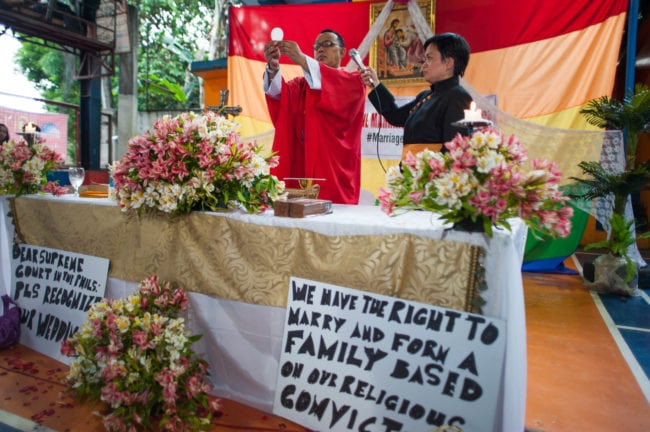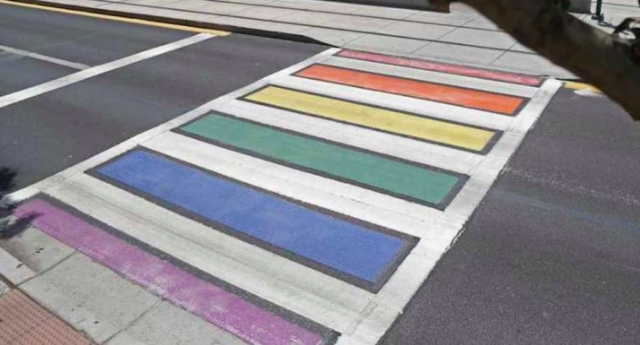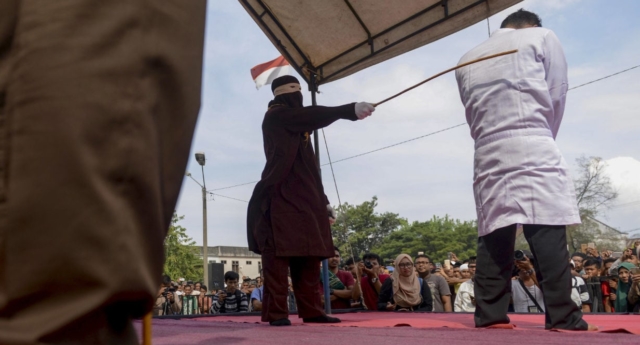The Trump administration is reportedly draining money from HIV treatment programes in order to fund child migrant detention.
Slate reports that budget documents show funding has been reallocated within the Department of Health and Human Services from the Ryan White HIV/AIDS Program to pay for the Trump administration’s aggressive stance on child migrants, which may require thousands of people to be detained.
According to documents leaked to the outlet, funding is already being drained from the primary government programme for HIV/AIDS care in the US to fund the surge in detention work undertaken by the Office of Refugee Resettlement.
Slate alleges that “the process of transferring those HIV/AIDS funds has already begun”, while the department is set to seek further appropriations from Congress.
ORR documents project that 25,400 beds for minors being detained will be required by the end of the year, according to the outlet, leaving a budget shortfall of $585 million in fiscal year 2018, and $1.3 billion in the first quarter of fiscal year 2019.
The Ryan White HIV/AIDS Program, which was set up in 1990, has been funded across multiple Presidential administrations and works to “provide a comprehensive system of care that includes primary medical care and essential support services for people living with HIV”.
David Stacy, the Human Rights Campaign’s Director of Government Affairs, told pinkNews: “This administration’s cruelty toward undocumented children and families has been unconscionable.
“Now, we learn they are considering diverting funds from programs to provide health care for people living with HIV and medical support for refugees in order to pay for this president’s heartless obsession with imprisoning kids.
“The Ryan White HIV/AIDS Program is one of our nation’s premier public health efforts, and it is unthinkable that this administration would divert funds away from HIV treatment to fund its cruel attacks on kids and families at the border.”
It has long been in the crosshairs of Vice President Mike Pence, who famously once pledged to drain funding from the programme in order to fund state-sponsored ‘gay cure’ therapy.
On a 2000 Congressional campaign website, Pence wrote: “Congress should support the reauthorization of the Ryan White Care Act only after completion of an audit to ensure that federal dollars were no longer being given to organisations that celebrate and encourage the types of behaviours that facilitate the spreading of the HIV virus.
“Resources should be directed toward those institutions which provide assistance to those seeking to change their sexual behaviour.”
HIV/AIDS policy has suffered significantly under the Trump administration, with the President shuttering the White House Office of National AIDS Policy and dismissing all the members of the President’s Advisory Council on HIV/AIDS.
Trump – who once joked about coercively giving an HIV test to Princess Diana – has faced criticism from all sides for his approach on the issue.
Former President George W Bush previously issued a public warning to Trump over proposals to budget for the US government’s international HIV/AIDS programme, the President’s Emergency Plan for AIDS Relief (PEPFAR).
Former President Bush, who is often praised for setting up PEPFAR despite his broadly regressive stances on LGBT issues, penned an op-ed for the Washington Post warning against any cuts.
He wrote: “My administration launched PEPFAR in 2003 to address the HIV/AIDS pandemic that threatened to wipe out an entire generation on the continent of Africa. Nearly 15 years later, the program has achieved remarkable results in the fight against
“Nearly 15 years later, the program has achieved remarkable results in the fight against disease. Today, because of the commitment of many foreign governments, investments by partners, the resilience of the African people and the generosity of the American people, nearly 12 million lives have been saved.”
He added: “As the executive and legislative branches review the federal budget, they will have vigorous debates about how best to spend taxpayers’ money — and they should.
“Some will argue that we have enough problems at home and shouldn’t spend money overseas. I argue that we shouldn’t spend money on programs that don’t work, whether at home or abroad.
“But they should fully fund programs that have proven to be efficient, effective and results-oriented.
“Saving nearly 12 million lives is proof that PEPFAR works, and I urge our government to fully fund it. We are on the verge of an AIDS-free generation, but the people of Africa still need our help.
“The American people deserve credit for this tremendous success and should keep going until the job is done.”
Though diplomatically worded, the former Republican leader’s statement serves as a coded warning to Trump – and will be a rallying cry for moderates in Congress on the issue.
President Obama also previously warned about the importance of maintaining funding for HIV/AIDS projects.
The former President said: “We need to do more to reach those who are at risk for contracting HIV/AIDS, and the United States is helping shape the world’s response to this crisis and working alongside the international community to end this epidemic by 2030.
“We have strengthened and expanded the President’s Emergency Plan for AIDS Relief (PEPFAR), with now more than $70 billion invested, to accelerate our progress and work to control this epidemic with comprehensive and data-focused efforts.
“With PEPFAR support for more than 11 million people on life-saving treatment and through contributions to the Global Fund to Fight AIDS, Tuberculosis, and Malaria — including a new pledge of more than $4 billion through 2019 — there are now more than 18 million people getting HIV treatment and care.
“Because in sub-Saharan Africa young women and adolescent girls are over eight times more likely to get HIV/AIDS than young men, we launched a comprehensive prevention program to reduce HIV infections among this population in 10 sub-Saharan African countries.
“We have also helped prevent millions of new infections worldwide, including in more than 1.5 million babies of HIV-positive mothers who were born free of HIV.”
He warned: “Although we have come far in recent decades, our work is not yet done and the urgency to intervene in this epidemic is critical… accelerating the progress we have made will require sustained commitment and passion from every sector of society and across every level of government around the world.”




